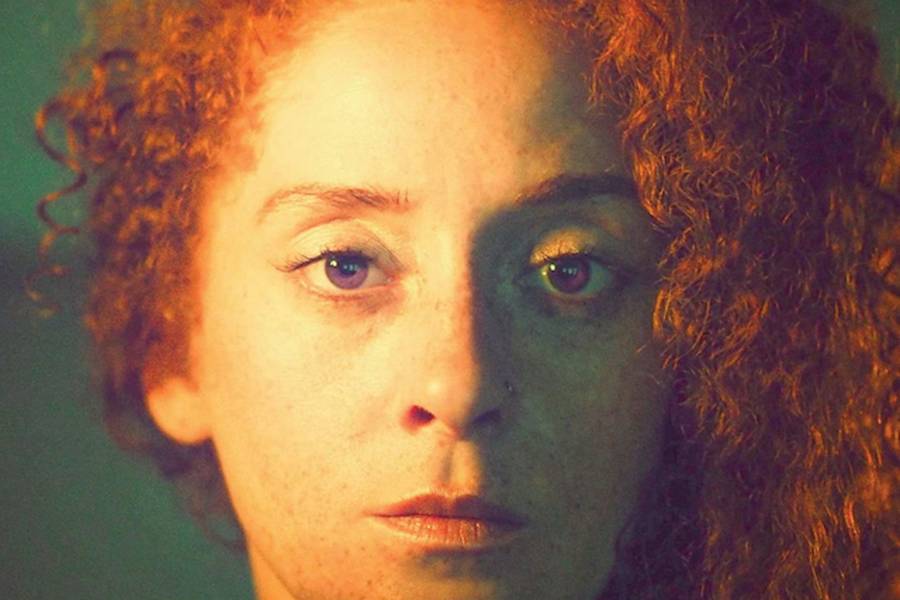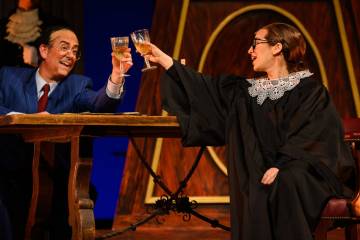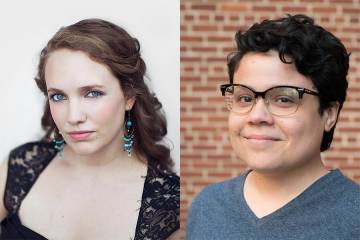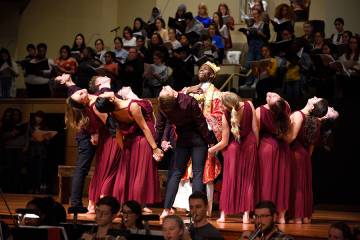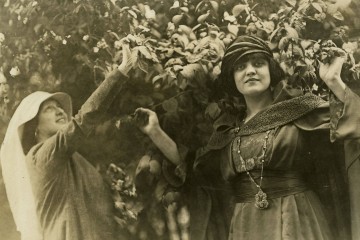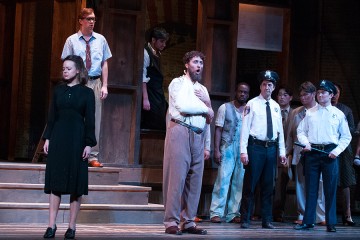The gala was planned for June 2020, with Supreme Court Justice Ruth Bader Ginsburg and renowned mezzo-soprano Denyce Graves slated to attend. IN Series, a D.C.-based opera-theater company known for its boundary-pushing works, was ready to announce the launch of a new residency program, the first in the nation designed exclusively to support artists of color in the overwhelmingly white industry.
Of course, as with so many plans for 2020, COVID-19 derailed this one. But, as IN Series artistic director Timothy Nelson, Peab '04, tells it, the pandemic provided a valuable reset for the program, which initially centered on performances and training. "We knew we wouldn't be able to do a first-year season the way we'd imagined," says Nelson, who converted IN Series to virtual programming for the 2020–21 season. "But it gave us a chance to take some space and be more thoughtful."
For one, Nelson and his colleagues realized that the underlying purpose of the Cardwell Dawson Residency Program—to build a support structure "that might allow singers of color to develop into leaders of color in the opera industry," he says—required direction from the artists themselves. Like most opera companies worldwide, IN Series is "led by a majority white board of directors, by a white artistic director," Nelson says, referring to himself. "It became clear that maybe we weren't the people who should be deciding what this program looks like."
So, over the past year and a half, the four inaugural fellows in the program—named after Mary Cardwell Dawson, founder of the National Negro Opera Company in Pittsburgh in 1941—set out to imagine its future, designing curriculum and networking opportunities for the cohorts that will follow them.
"What emerged was this group of us talking about how to create an equitable and forward-thinking opportunity for Black artists," says baritone Carl DuPont, one of the fellows and an assistant professor of voice at the Johns Hopkins Peabody Institute. "We carefully and conscientiously constructed a fellowship that centers on the needs of the artist as an individual: body, mind, and soul."
The program is now envisioned as a four-year opportunity for early professional opera singers who aspire toward roles in arts activism and leadership. In addition to taking lead parts in IN Series productions and pursuing ambitious personal projects—say, writing, producing, and funding a new opera—the fellows will serve as board members of the opera company. Ultimately, the program faces outward, encouraging community projects as well as connecting with an ecosystem of Black artists and leaders in the national opera scene, including dedicated mentors for each fellow.
"We're trying to find ways to radically change the top of the opera industry as a means of changing everything that's downstream," Nelson says.
View this post on Instagram
The current group of fellows includes another Peabody grad—soprano Melissa Wimbish, Peab '11 (GPD), '14 (GPD)—along with soprano Elise Christine Jenkins and bass- baritone Jarrod Lee.
Among their performances with IN Series this past year, the fellows collaborated on an animated film, Boheme in the Heights, an Afro-Latinx reimagining of Puccini's classic. The film is set to debut at Baltimore's Patterson Theater in October.
It's one of several productions planned for Baltimore, which Nelson recently announced as an official second home for IN Series as the company marks its 40th birthday. The city is part-and-parcel of Nelson's own history: It's where he grew up and, in 2002, founded his own opera company, the American Opera Theater, while studying composition at Peabody. At the time, the company was part of a thriving movement of small, innovative opera houses in the city, he says. In 2011, Nelson left for Europe, directing dozens of major productions there before returning to the U.S. to take charge of IN Series in 2018. Under his direction, IN Series has become known for unexpected and refreshing choices, like mashing up Verdi's music with Shakespeare's King Lear narrative for Viva V.E.R.D.I. The upcoming Othello/Desdemona brings a two-night experience penned in part by Toni Morrison and set to the music of Nina Simone.
Also see
In the two decades since he's worked in Baltimore, Nelson says the experimental opera culture has dissipated—but he believes it's ripe for revival. "I've felt a sort of artistic imperative to try to bring opera back to Baltimore," he says.
The Cardwell Dawson program is already demonstrating strong ties to Baltimore, with three of the four fellows living there and two connected to Peabody. Once this initial group graduates, Nelson aims to sponsor eight young artists for each four-year cohort in the future.
"This is not an ancillary program," he says. "It's designed to be at the core of our work. It changes the makeup of our board, our staff, our artists, and our audience."




